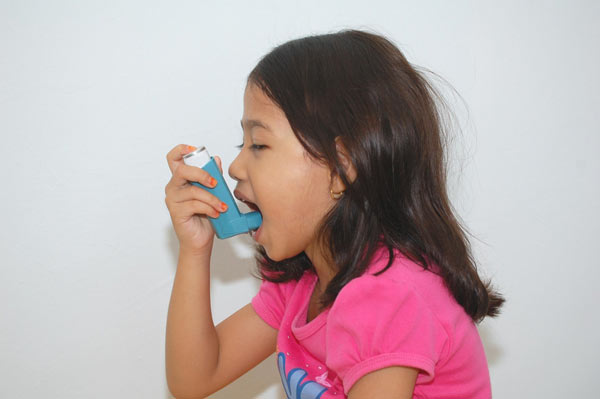Eating Nuts in Pregnancy May Lower Kids' Asthma Risk

Get the world’s most fascinating discoveries delivered straight to your inbox.
You are now subscribed
Your newsletter sign-up was successful
Want to add more newsletters?

Delivered Daily
Daily Newsletter
Sign up for the latest discoveries, groundbreaking research and fascinating breakthroughs that impact you and the wider world direct to your inbox.

Once a week
Life's Little Mysteries
Feed your curiosity with an exclusive mystery every week, solved with science and delivered direct to your inbox before it's seen anywhere else.

Once a week
How It Works
Sign up to our free science & technology newsletter for your weekly fix of fascinating articles, quick quizzes, amazing images, and more

Delivered daily
Space.com Newsletter
Breaking space news, the latest updates on rocket launches, skywatching events and more!

Once a month
Watch This Space
Sign up to our monthly entertainment newsletter to keep up with all our coverage of the latest sci-fi and space movies, tv shows, games and books.

Once a week
Night Sky This Week
Discover this week's must-see night sky events, moon phases, and stunning astrophotos. Sign up for our skywatching newsletter and explore the universe with us!
Join the club
Get full access to premium articles, exclusive features and a growing list of member rewards.
Women who eat peanuts during pregnancy may reduce their child's risk of asthma later in life, a new study from Denmark suggests.
In the study, children of mothers who ate peanuts at least once a week during pregnancy were 21 percent less likely to develop asthma by the time they were 18 months old, compared with children of mothers who did not eat peanuts while pregnant.
The study found a similar link between eating tree nuts, such as almonds and pecans, during pregnancy and a lower risk of asthma in children.
The findings contradict earlier advice that pregnant women should refrain from eating certain nuts. In 2000, the American Academy of Pediatrics recommended women with a family history of peanut allergies avoid eating peanuts in pregnancy, but the APP withdrew this recommendation in 2008 due to lack of evidence to support it.
A study last year found eating peanuts in pregnancy increased an infants' risk of testing positive for a peanut allergy.
The new findings are interesting and are further indication that eating nuts in pregnancy does not increase a child's allergy risk, said Dr. Michael Kramer, a professor of pediatrics and epidemiology at Montreal Children's Hospital in Canada, who was not involved in the study. However, the finding that eating nuts in pregnancy actually protects against the development of asthma is new, and requires further research to confirm, Kramer said.
It's possible the foods the mothers ate during breast-feeding, or the foods the children ate early on, influenced the results, and neither factor was addressed by the current study, Kramer said.
Get the world’s most fascinating discoveries delivered straight to your inbox.
Eating nuts in pregnancy
Previous studies on the link between nut consumption in pregnancy and risk of allergies or asthma in children have had conflicting results.
In the new study, Ekaterina Maslova, of Harvard School of Public Health, and colleagues analyzed information from nearly 62,000 women in Denmark who answered questions about their peanut and tree nut consumption during pregnancy. The women also reported whether their children had been diagnosed with asthma at 18 months, and 7 years.
About 15 percent of children whose mothers ate peanuts at least once a week in pregnancy were diagnosed with asthma at 18 months, while 17.5 percent of children whose mothers never ate peanuts had been diagnosed.
Eating tree nuts in pregnancy lowered the risk of asthma in children by about 25 percent.
No link was found between the mother's peanut consumption and the child's risk of asthma at age 7, based on the information from the survey.
However, when the researchers examined information from a national registry of asthma cases in later childhood, they found eating peanuts at least once a week in pregnancy lowered a child's risk of asthma by 34 percent.
Why the link?
The new study had advantages over previous work in that it was large and included information from a registry, which may be more accurate than self-reports.
Nutrients found in nuts, such as vitamin E and zinc, have been hypothesized to influence lung growth, airway development and immune system function, and may be responsible for the lower risk of asthma, the researchers said. However, more research is needed to confirm this.
The study will be published in the September issue of the Journal of Allergy and Clinical Immunology.
Pass it on: Mothers do not have to avoid nuts in pregnancy, a new study says.
This story was provided by MyHealthNewsDaily, a sister site to LiveScience. Follow Rachael Rettner on Twitter @RachaelRettner, orMyHealthNewsDaily @MyHealth_MHND. We're also on Facebook & Google+.

Rachael is a Live Science contributor, and was a former channel editor and senior writer for Live Science between 2010 and 2022. She has a master's degree in journalism from New York University's Science, Health and Environmental Reporting Program. She also holds a B.S. in molecular biology and an M.S. in biology from the University of California, San Diego. Her work has appeared in Scienceline, The Washington Post and Scientific American.
 Live Science Plus
Live Science Plus










